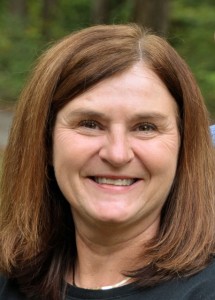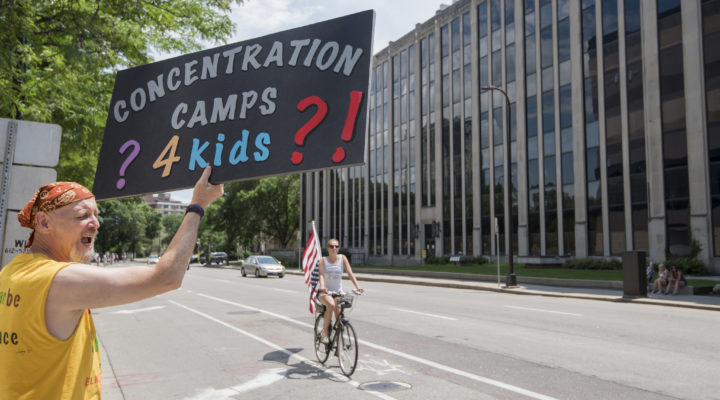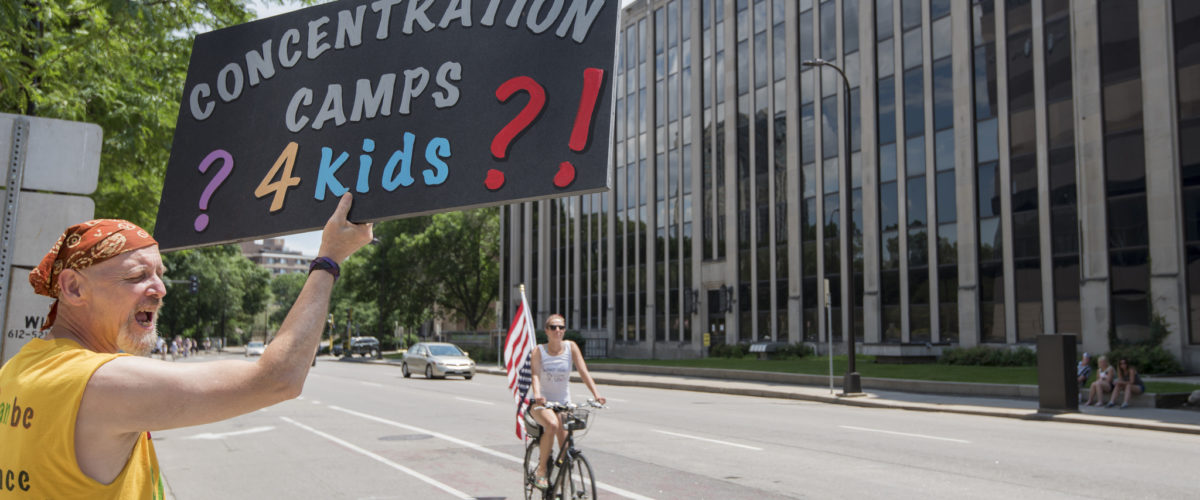Separating immigrant children from their families at the U.S.-Mexico border was bad enough, but it was even more tragic when asylum-seeking families were ripped apart while trying to get into the country, immigrant advocate Sue Smith says.
“Asylum seeking isn’t illegal,” said Smith. She and husband Greg Smith are Cooperative Baptist Fellowship field personnel and co-founders of LUCHA Ministries, a Fredericksburg, Virginia-based nonprofit that ministers to Latinos struggling to adjust to life in the United States.

Sue Smith
According to U.S. and international laws, those requesting asylum must demonstrate they are subject to persecution in their home nations. Historically, the United States has permitted application by those already in the country or at its borders. Seeking that protection doesn’t guarantee it will be granted, but applicants have traditionally not been arrested or detained during the process, Smith said.
The Trump administration’s recently ended anti-immigration policy, known as “zero tolerance,” included incarcerating children apart from parents or adult caretakers when caught trying to enter the U.S. illegally. But it also sparked and outcry and was halted in June. A judge ordered that children be reunited with their parents over the summer, a process that is still ongoing.
One of the injustices in the practice was that it treated asylum seekers like criminals, Smith said. And just as disturbing is that a lot of Americans don’t know the difference between someone seeking asylum and someone trying to enter the nation illegally.
Smith has recently taken to explain those differences via social media.
“I think the news sometimes makes it sound like asylum seekers come into the country illegally,” she said. “But anyone has a right to seek asylum. That’s different from sneaking across the border.”
Smith spoke with Baptist News Global about American policies and attitudes toward refugees seeking shelter in the U.S.
How is life right now for asylum seekers in the U.S.?
It’s gotten worse. There are a lot more. As we see the levels of violence increasing we saw that wave of unaccompanied minors fleeing that violence. They were coming to join their relatives already in the United States. We also saw lot of young moms. In the last five years we have seen many more.
What conditions typically drive someone to seek asylum?
There are all kinds of reasons. There was a young woman several years ago (in Latin America) who was working at a school and a local drug lord had his eye on her. He determined she was going to be his woman. It didn’t matter that she had a husband and kids. He had claimed her. She knew her husband couldn’t stand up to the guy. He was stalking her. She didn’t feel she had a choice but to leave. She had a sister in the U.S., so she came seeking asylum.
A lot of it is extortion. The renta is an extortion payment local gangs require businesses to pay. I’m thinking of a Honduran woman who had four kids and ran a food business. The gang came around and told her to pay up. She said no and reported them. They came back and said they would kill her and her kids. She packed up the next day and fled. She is now with an aunt in our community. She had a place to come but is still waiting on an asylum ruling. It takes a while.
Are asylum seekers being painted with a wide brush here?
Yes. People don’t understand the difference. To them, if you cross the border, you cross the border. I think that’s how people want to see it. Their view is that, regardless if you are fleeing violence, if you don’t have a visa, you shouldn’t be here. Even if it’s truly a fear of death by the gangs, I think most Americans are looking at everybody the same now. I think that’s very scary. As people of faith I just can’t fathom turning our backs on people.
What can people of faith do about this?
I think be educated and aware of what’s going on in these countries and what asylum really means – and what it doesn’t mean. I’ve said it 100 times before. It doesn’t mean spitting out the last thing you saw on Facebook but digging a little deeper into why these people are coming and why they are continuing to come. It also means knowing about things like internal displacement in these countries. Like El Salvador, which is about the size of Massachusetts. If you are in danger, you can do two to three moves in-country, and then there is no place to go. When we live in country as large as U.S. it’s easy to miss that, and when we think of fleeing we think of going here and there. But the only option for people in El Salvador is to leave the country behind. What else can people do? I wish I knew. Advocate. Stay aware of the issues and stay on Congress to do things that are moral and just. Separating the kids is not that. Using kids as an example is not a moral way to go. Keep the pressure up.
Previous stories:
Pastor: ‘Protecting borders’ was also the excuse for detention of Japanese-Americans
‘Zero-tolerance’ support thrusts Sessions into Methodist justice process


